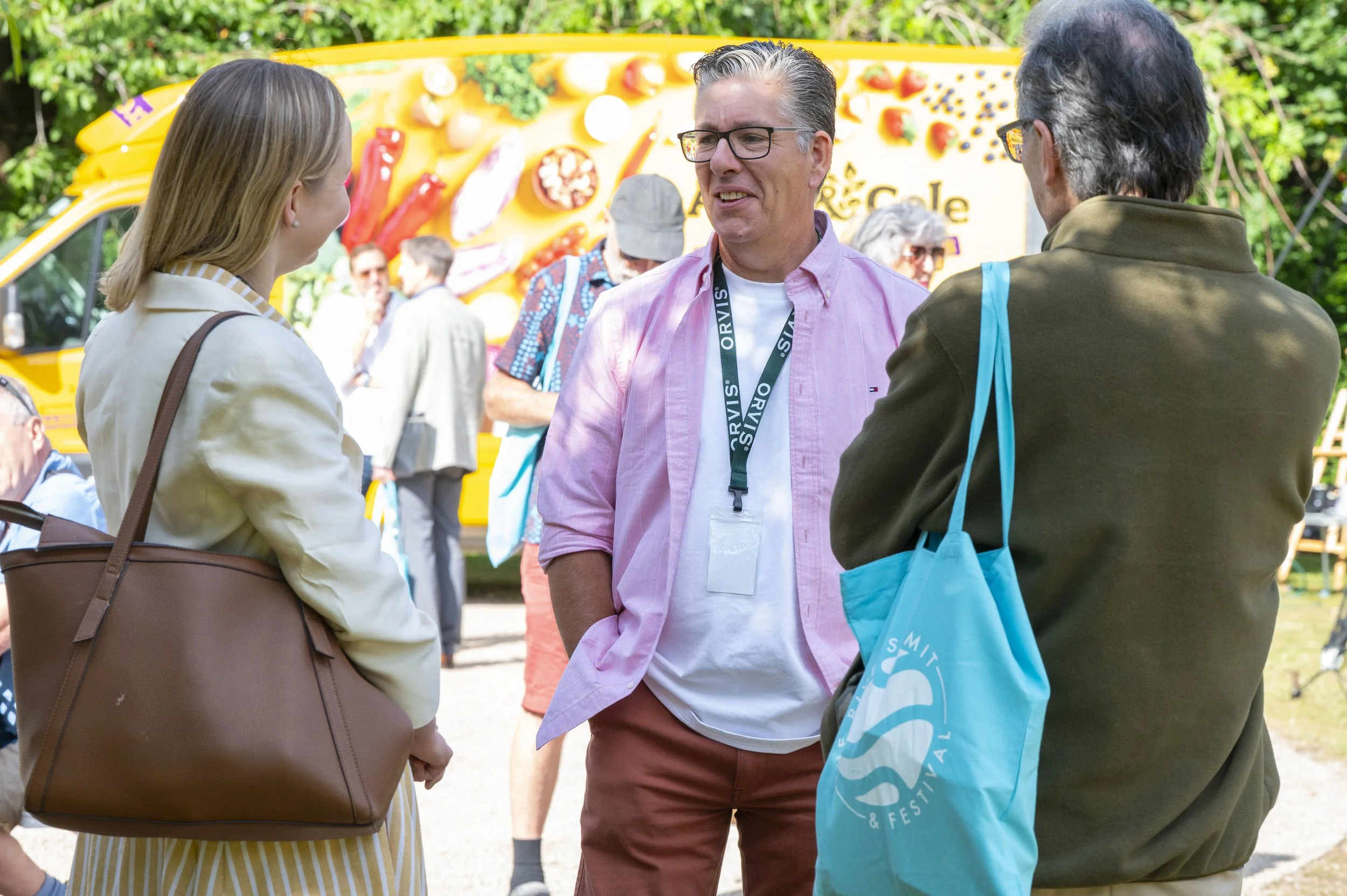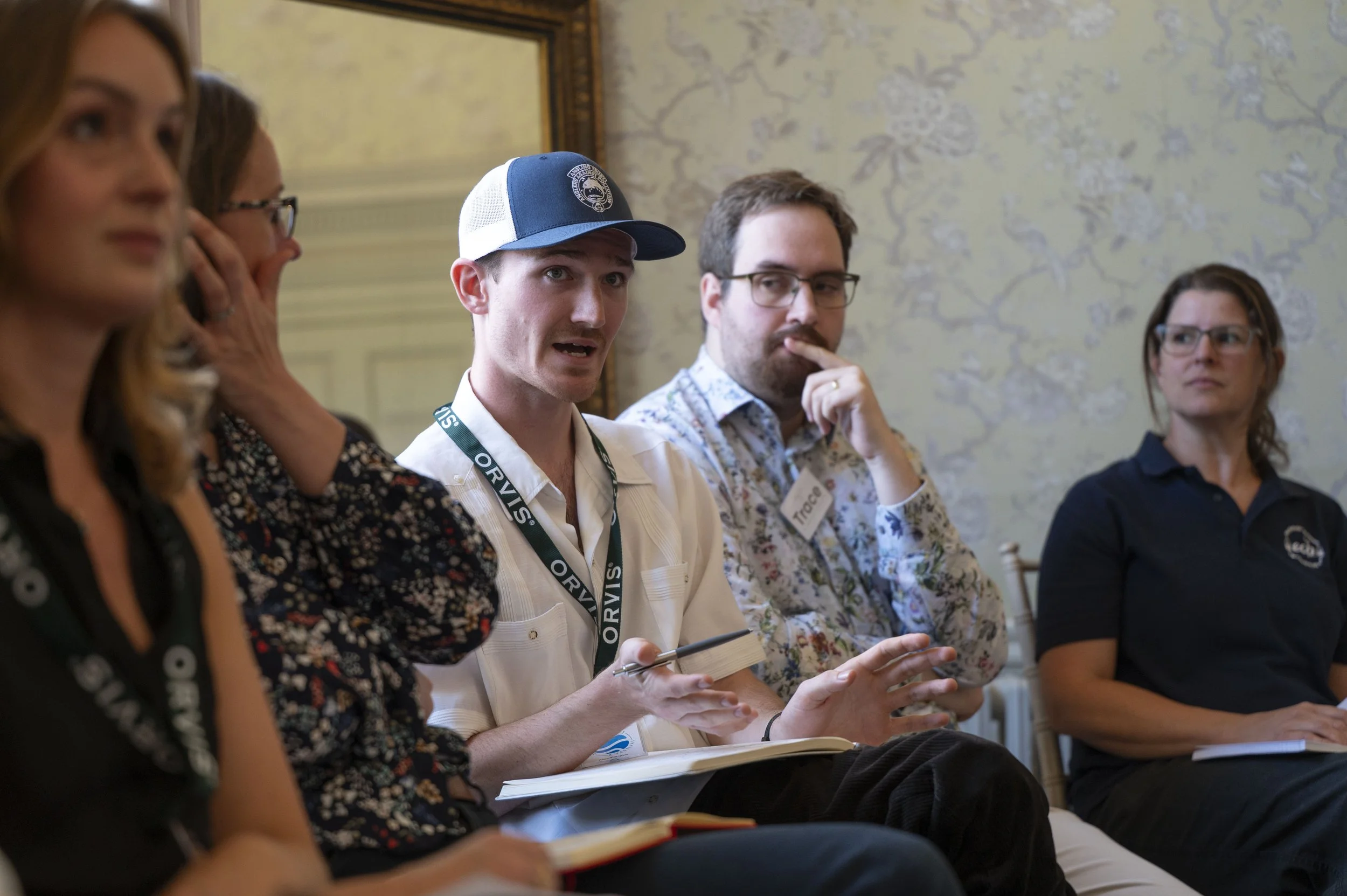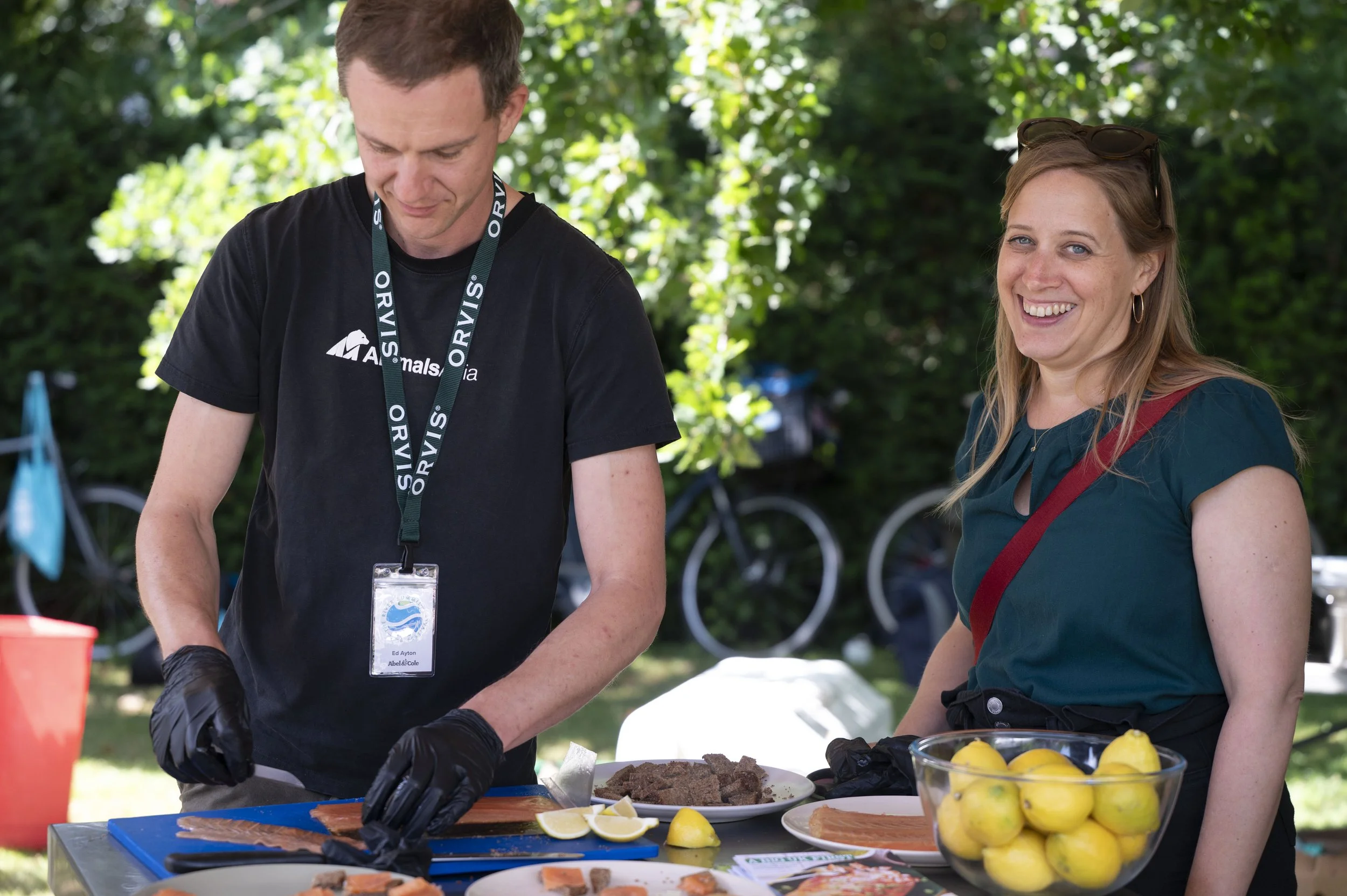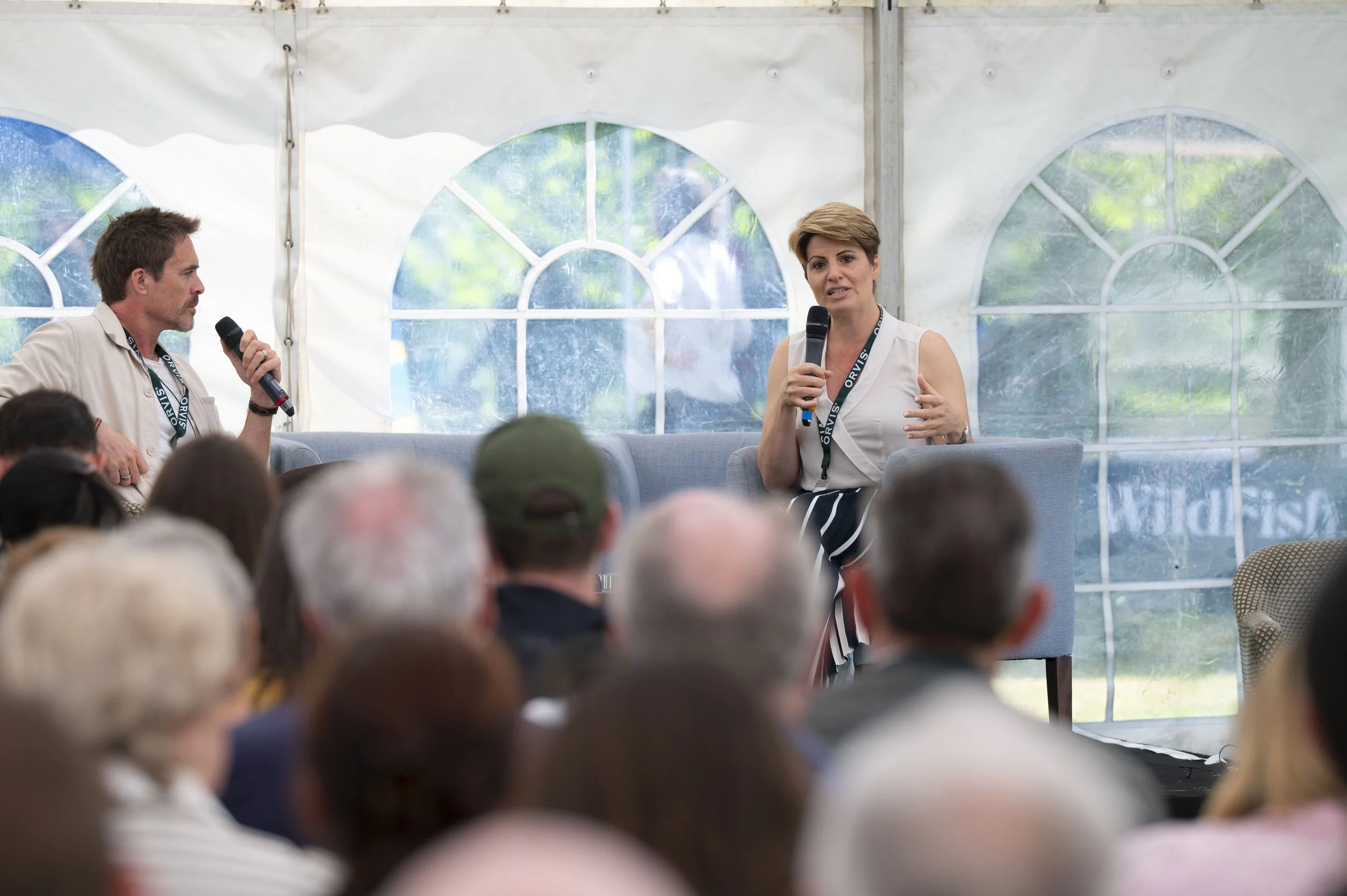The Power of Spoken Word in a Data-Driven Age
In an era where we're drowning in data and shouting past each other on social media, something remarkable happened at the UK River Summit. People actually talked to each other. And listened.
We live in a time of infinite information but finite attention. Our screens flood us with statistics, infographics, and 280-character takes on complex issues. Yet when it comes to the most pressing challenges facing our water systems – from chemical pollution to climate change – all that data hasn't translated into the collaborative action we desperately need.
The UK River Summit proved something counter-cultural: that spoken word, in the right setting, remains our most powerful tool for change.
Beyond the Talk Shop
"Testing the Waters" was scheduled for an hour. It ran over by thirty minutes because people couldn't stop talking. Not at each other, but with each other. Government scientists, citizen researchers, water company representatives, and environmental campaigners found themselves in genuine dialogue about water monitoring – something that rarely happens in their separate professional silos. It was so popular that some people had to sit on the floor.
As our feedback session revealed, this wasn't just networking for networking's sake. Real partnerships emerged. New collaborations took shape. The Morden Hall event sparked connections between individuals and local catchment partnerships. Thames E.coli and eDNA monitoring projects found new life through face-to-face conversations that would never have happened via email or LinkedIn.
At the Testing the Waters: Monitoring Methodologies Focus Group
The Irreplaceable Human Element
There's something about the spoken word that data cannot replicate. When Professor Alistair Boxall explained that we're detecting 4,000 different chemicals in Yorkshire's waterways, the numbers hit differently when delivered to a room full of people who swim in those very waters. When a riverkeeper with 45 years of experience challenged the Environment Agency's Chief Scientist directly, it created a tension that no spreadsheet could capture.
The "relaxed atmosphere and diverse attendees" that our partners noted wasn't accidental. We deliberately chose Morden Hall's riverside setting, created spaces for informal conversation, and mixed policy panels with river walks. Because change happens in the spaces between formal sessions – over coffee, during lunch, in those moments when guard comes down and genuine human connection takes place.
Conversation as Catalyst
Abel & Cole's journey exemplifies this perfectly. Challenged at our 2024 Summit about their open-net farmed salmon, they could have defended their position or dismissed the criticism. Instead, they listened. They went away, did the hard work of research and farm visits, and returned in 2025 to announce they'd removed the product from their range entirely – taking thousands of customers with them toward more sustainable options.
That transformation didn't happen because of a report or a campaign. It happened because someone had the courage to ask an uncomfortable question in a room full of peers, and someone else had the grace to really hear it.
Creating Conditions for Change
Our feedback highlighted what made the difference: bringing together voices that don't normally sit in the same room. National NGOs alongside local groups. Farmers next to regulators. Scientists sharing tables with activists. As one partner noted, "the event succeeded in creating a strong sense of community" across traditionally adversarial lines.
The spontaneous formation of the Testing the Waters Consortium emerged not from a pre-planned agenda, but from the organic energy that builds when the right people gather with shared purpose. No amount of virtual collaboration could have generated that moment of collective commitment.
The Long Game of Trust
Building partnerships requires trust, and trust requires time spent in each other's presence. The "networking opportunities" and "meaningful conversations" our partners valued weren't just nice-to-haves – they were the essential infrastructure for future collaboration.
As we plan River Cafes and future Summits, we're designing for these encounters. Creating more coffee stations to address the long lines that actually became impromptu networking opportunities. Considering name tags to ease introductions. Planning outdoor spaces that invite the kind of informal exchange where ideas cross-pollinate.
Delivering Beyond Dialogue
The criticism of "talk shops" is fair – unless the talking leads to walking. Our consortium is now meeting quarterly. New monitoring collaborations are being piloted. Water quality testing partnerships are expanding across catchments. The spoken commitments made at Morden Hall are becoming written agreements and funded projects.
We're tracking these outcomes not just to prove our worth, but to understand what kinds of conversations actually catalyse action. What we're learning is that the magic happens when we move beyond information transfer to genuine encounter – when people stop performing their professional roles and start engaging as humans who care about the same threatened waters.
Democracy in Action
Perhaps most importantly, the Summit created space for public participation in policy conversations that too often happen behind closed doors. When Ofwat discussed their WEC fund, they weren't just presenting to industry insiders – they were fielding questions from the very citizens whose bills fund these initiatives. River users could challenge Environment Agency scientists directly. Anglers could question water company executives about permit breaches.
This democratic element – the opportunity for any member of the public to ask questions and be heard – transforms the dynamic from top-down communication to genuine accountability. Yet it requires political courage from those in power.
Which makes it all the more disappointing when that courage falters. Emma Hardy, Minister for Water, had initially agreed to join our Water Finance and Governance panel for exactly this kind of multi-way dialogue. At the last minute, she withdrew from the panel format, agreeing only to a controlled interview with no audience Q&A. The conversation we'd planned – where minister, industry leaders, academics, campaigners and the public could explore water policy together – was reduced to a one-way broadcast.
This wasn't just a scheduling change; it was a retreat from the very model that makes these gatherings transformative. When decision-makers insulate themselves from direct questioning, they miss the insights that only emerge through unscripted exchange.
Minister for Water, Emma Hardy MP
The Quiet Revolution
In our noisy, polarized world, there's something quietly revolutionary about creating spaces where people can think out loud together. Where water company executives can admit uncertainty. Where campaigners can acknowledge complexity. Where scientists can translate jargon into human terms. And where the public can hold power to account directly.
The spoken word endures because it carries not just information, but intention. Tone. Nuance. The pause before a difficult answer. The moment when someone's voice catches as they describe a waterway they love. These elements of human communication can't be compressed into data points or captured in screenshots.
They can only be experienced in the irreplaceable moment when people gather with purpose and permission to speak honestly about things that matter.
Speaking Rivers into Being
As we move forward, we're not abandoning data or dismissing digital tools. We're recognizing that the most sophisticated monitoring technology means nothing without the human relationships to act on what it reveals. The most compelling research remains invisible until someone stands up and gives it voice in a room full of people who can make things happen.
Our water systems are dying not for lack of information, but for lack of the collaborative will to act on what we already know. Building that will requires more than data. It requires the irreplaceable power of human beings, gathered together, finding their voice for the waters that cannot speak for themselves.
The UK River Summit proved that in our data-saturated age, the spoken word – authentic, courageous, connecting – remains our most powerful technology for change.
The Testing the Waters Consortium meets quarterly. River Cafes are being planned across the UK. Our 2026 Summit will create even more space for the conversations that matter. Because water unites us when we let it – and sometimes that letting happens one conversation at a time.





